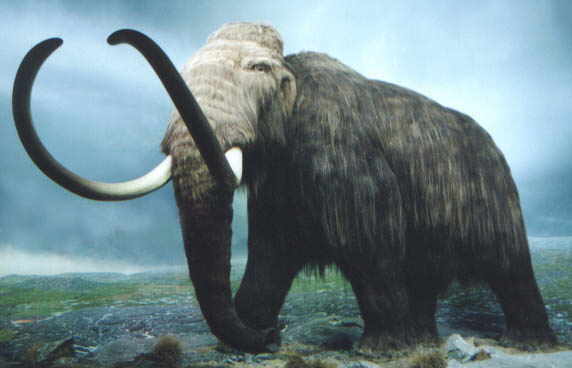 Recently, it was announced that the genomic sequencing of a woolly mammoth is close to completion. But wait!- you say- Where did they get DNA to sequence the beasts? Well, remember that frozen woolly mammoth they found in the ice back in 2005? That's where they found it. Specifically, in the frozen hair.
Recently, it was announced that the genomic sequencing of a woolly mammoth is close to completion. But wait!- you say- Where did they get DNA to sequence the beasts? Well, remember that frozen woolly mammoth they found in the ice back in 2005? That's where they found it. Specifically, in the frozen hair.See, hair follicles contain DNA that is surrounded by Keratin. This Keratin acts as a shield to the DNA, and does a surprisingly good job at protecting the DNA from all sorts of damage. It is argued that the best DNA samples are found in hair (instead of bone, skin, blood, etc). Also, the colder DNA gets, the lower the amount of errors found in it. Thus, frozen hair is one of the best places to find intact, prehistoric DNA.
Anyway, the mammoth's DNA is used to sequence the animal's entire genome. The genome is basically the genetic blueprint of the entire animal, from the physical aspects to the shape of its blood cells. The genome is sequenced thanks to the use of sophisticated computer-operated genetic labs. These labs are completely automated, and work around the clock to solve the prehistoric puzzle.
If the genome is successfully sequenced, and a number of other factors work themselves out, then there is a good possibility that the woolly mammoth can be given life again! That's right- there's a good chance these animals will soon (within 15 years) be walking among us again, much like the dinosaurs of Jurassic Park.
Here's a quote from the Washington Post:
"An international team of scientists has reconstructed about two-thirds of the genome of the woolly mammoth using DNA extracted from balls of hair, the first time this has been accomplished for an extinct species. The project provides some of the starting material that would be required to bring back to life the giant, hairy, cold-weather animals. That task, however, is not likely to be accomplished soon—and may turn out to be impossible."
So, as wild as it may sound, we may soon be given the chance to gaze upon these once-extinct animals. Humans will perhaps give life back to a dead population.
However, the human in me begs a few questions
- Is this playing God?
- Let's say we can bring back extinct species- how do we determine which of them deserves life?
- How will this affect our already fragile planet?
Can you imagine the power of our technology nowadays? I'm wondering if we can revive a mammoth, is it possible to revive a people?
ReplyDelete